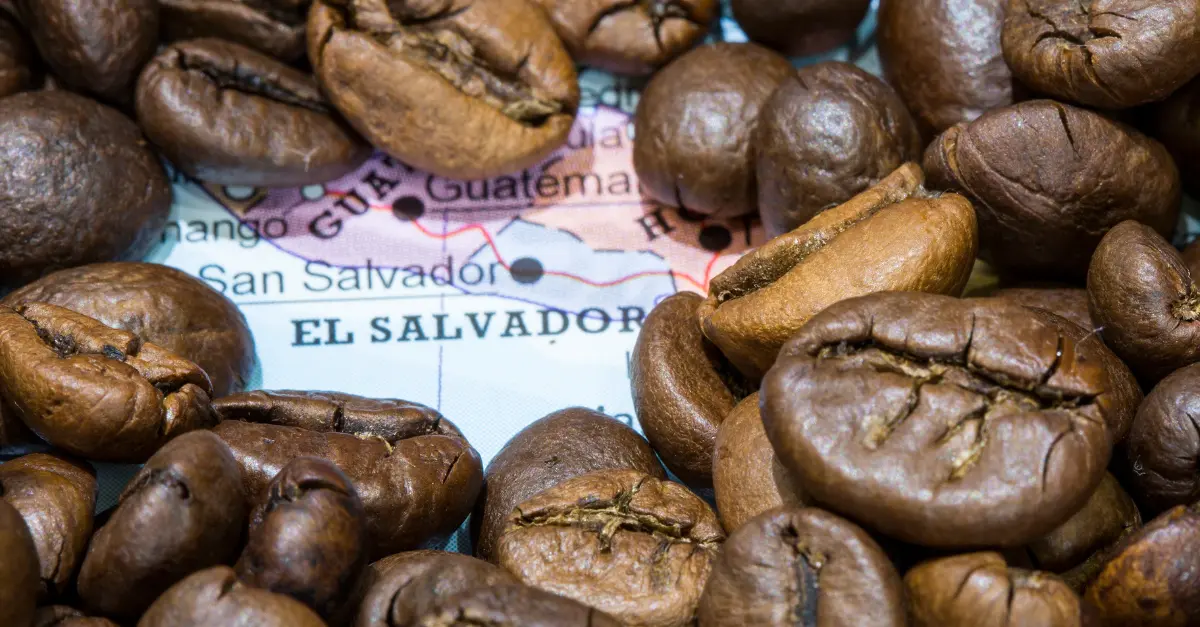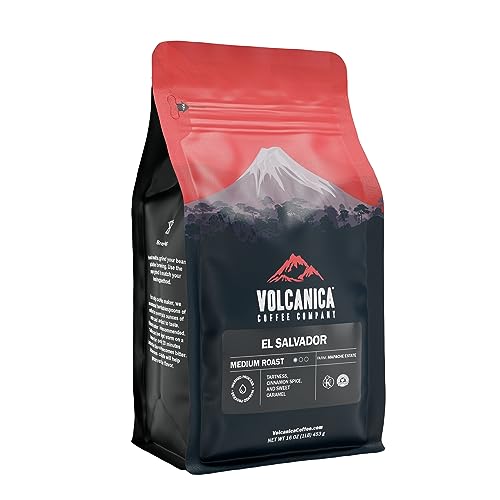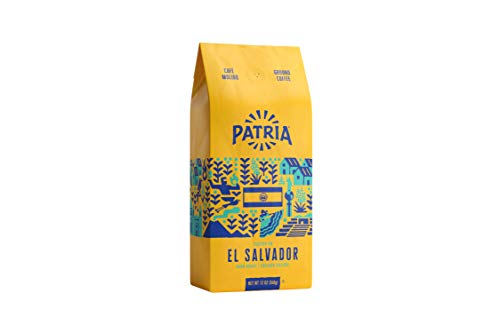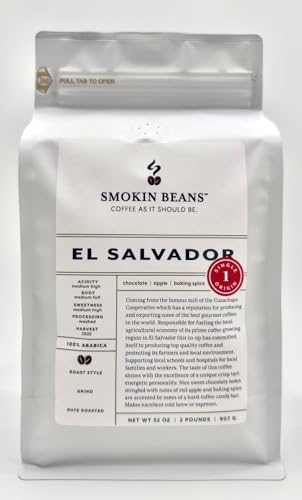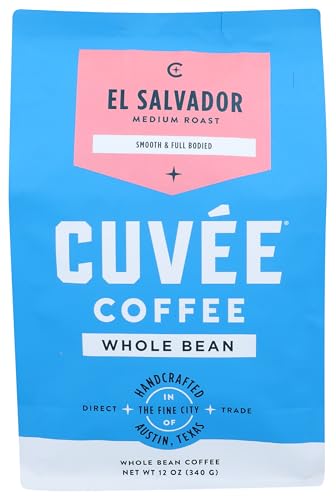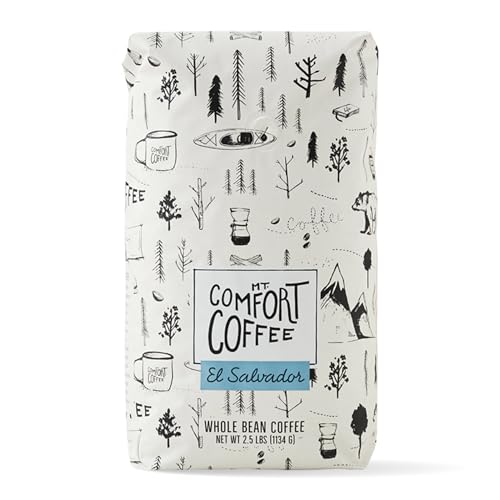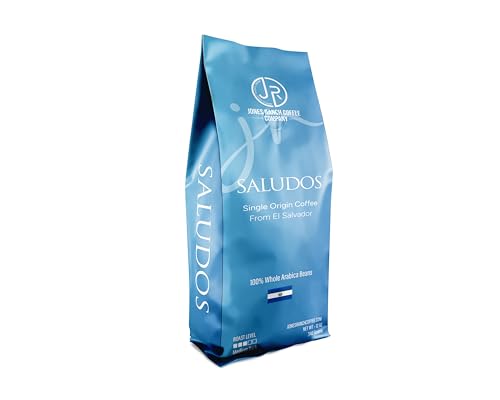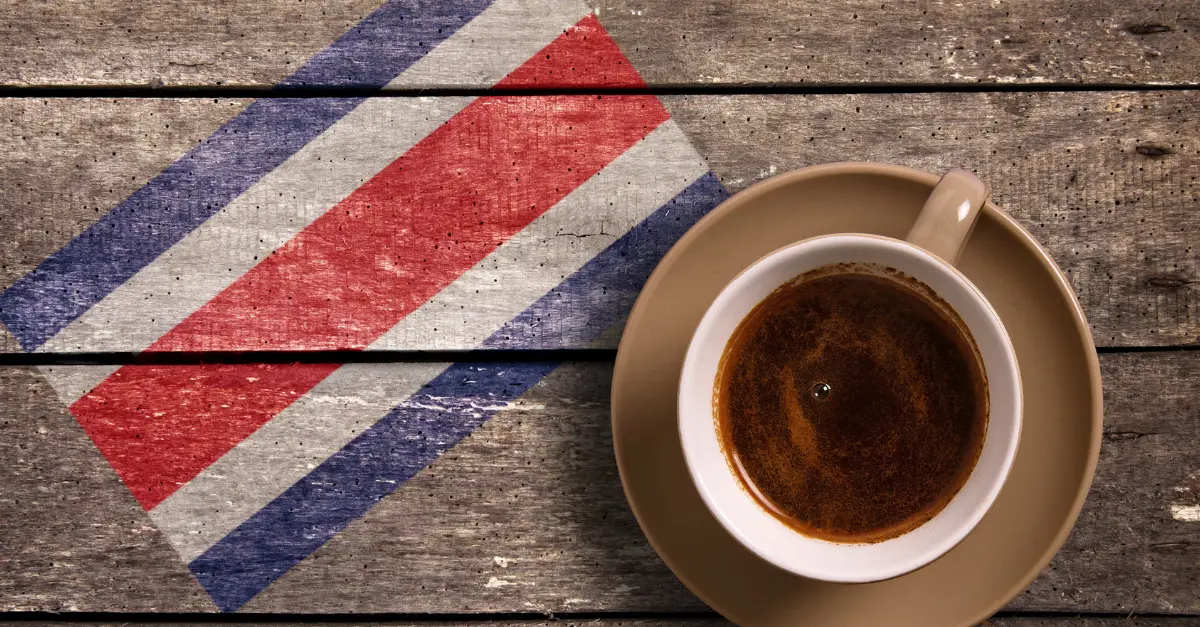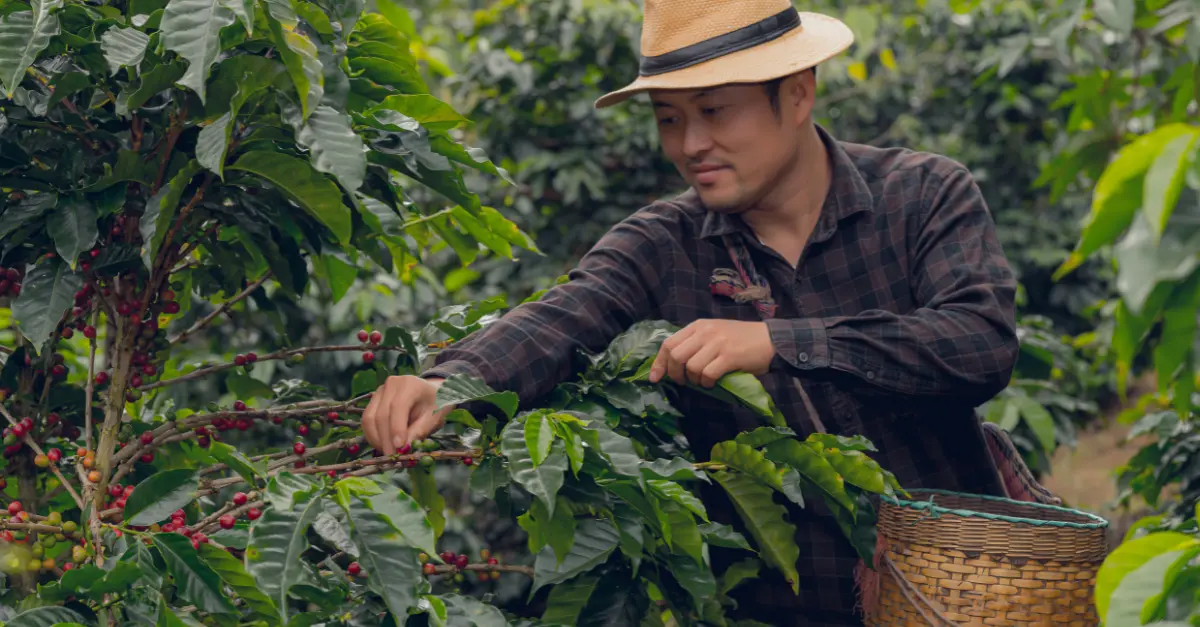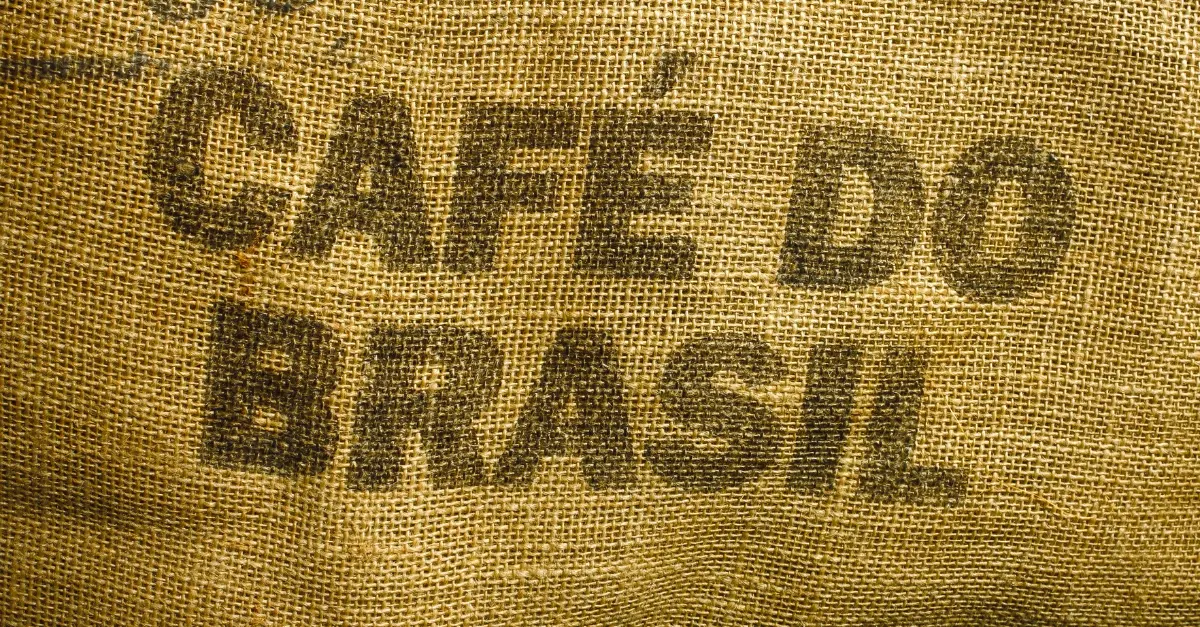You may be wondering why El Salvador coffee from such a small country — one of the smallest in Central America — is worth trying, but the country’s rich history and generational knowledge of coffee growth speaks for itself.
The Salvadorian people have a deep love of coffee, and although the height of their coffee-exporting dominance has fallen away, El Salvador coffee still creates an incredible brew. Coffee currently makes up about 1.81% of El Salvador’s trade. Many people still crave coffee daily as the people drink Maragogipe, Bourbon, and Pacamara coffee.
The small country is littered with volcanoes that create nutrient-rich soil for the natural forests and agricultural developments. These nutrients give growers the nutrients their coffee needs.
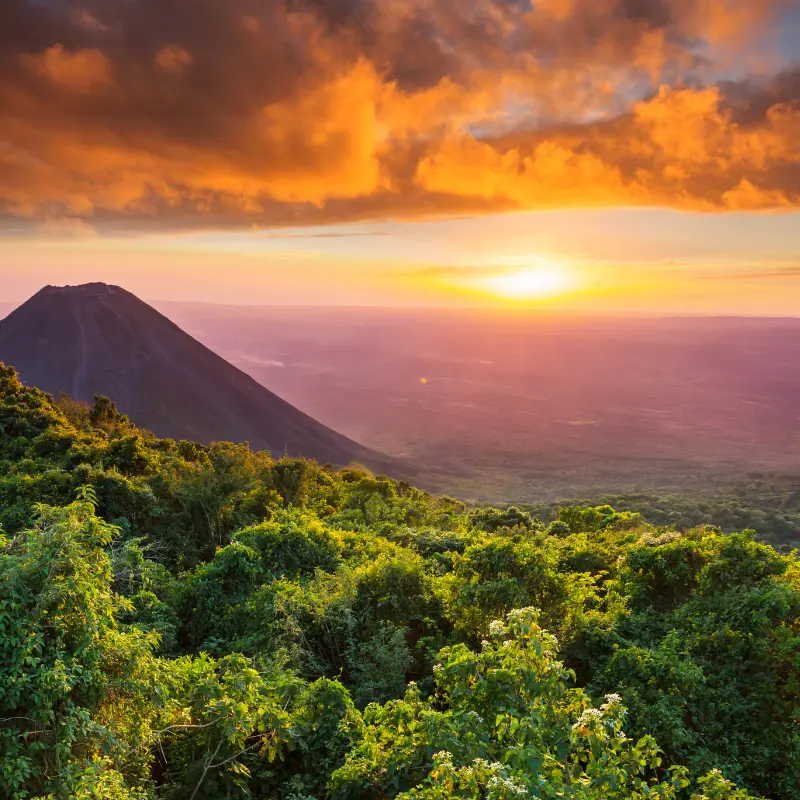
How We Chose El Salvador Coffee Beans
When it comes to sourcing the finest coffee beans from El Salvador, our selection process is both meticulous and thoughtful. We start by focusing on renowned coffee-growing regions like Apaneca-Ilamatepec and El Bálsamo-Quetzaltepec, known for their fertile volcanic soils and optimal growing conditions. We then narrow our search to farms that practice sustainable agriculture, ensuring that we’re supporting both the environment and the local community. Varietals matter too; we’re particularly fond of native beans like Pacas and innovative hybrids like Pacamara, each offering a unique flavor profile that stands out in the cup. But it’s not just about the bean; it’s about the people behind it. We build relationships with farmers who share our passion for quality, like the Alfaro family of El Carmen Estate, who have been cultivating coffee for over a century. Finally, we sample rigorously, looking for beans that offer a balance of acidity, body, and complex flavors. Only then do we feel confident that we’re offering you the very best that El Salvador has to offer.
- Focus on Renowned Regions: Target coffee-growing areas like Apaneca-Ilamatepec and El Bálsamo-Quetzaltepec known for fertile volcanic soils.
- Sustainability Matters: Choose farms that practice sustainable agriculture to support both the environment and local communities.
- Varietal Selection: Preference for native beans like Pacas and hybrids like Pacamara for their unique flavors.
- Relationship Building: Partner with farmers who have a long-standing reputation for quality, such as the Alfaro family of El Carmen Estate.
- Rigorous Sampling: Conduct extensive taste tests to find beans with the right balance of acidity, body, and complex flavors.
Featured Products
El Salvador Fresh Roasted Ground Coffee
⭐ 4.4/5 • 💰 ~$18
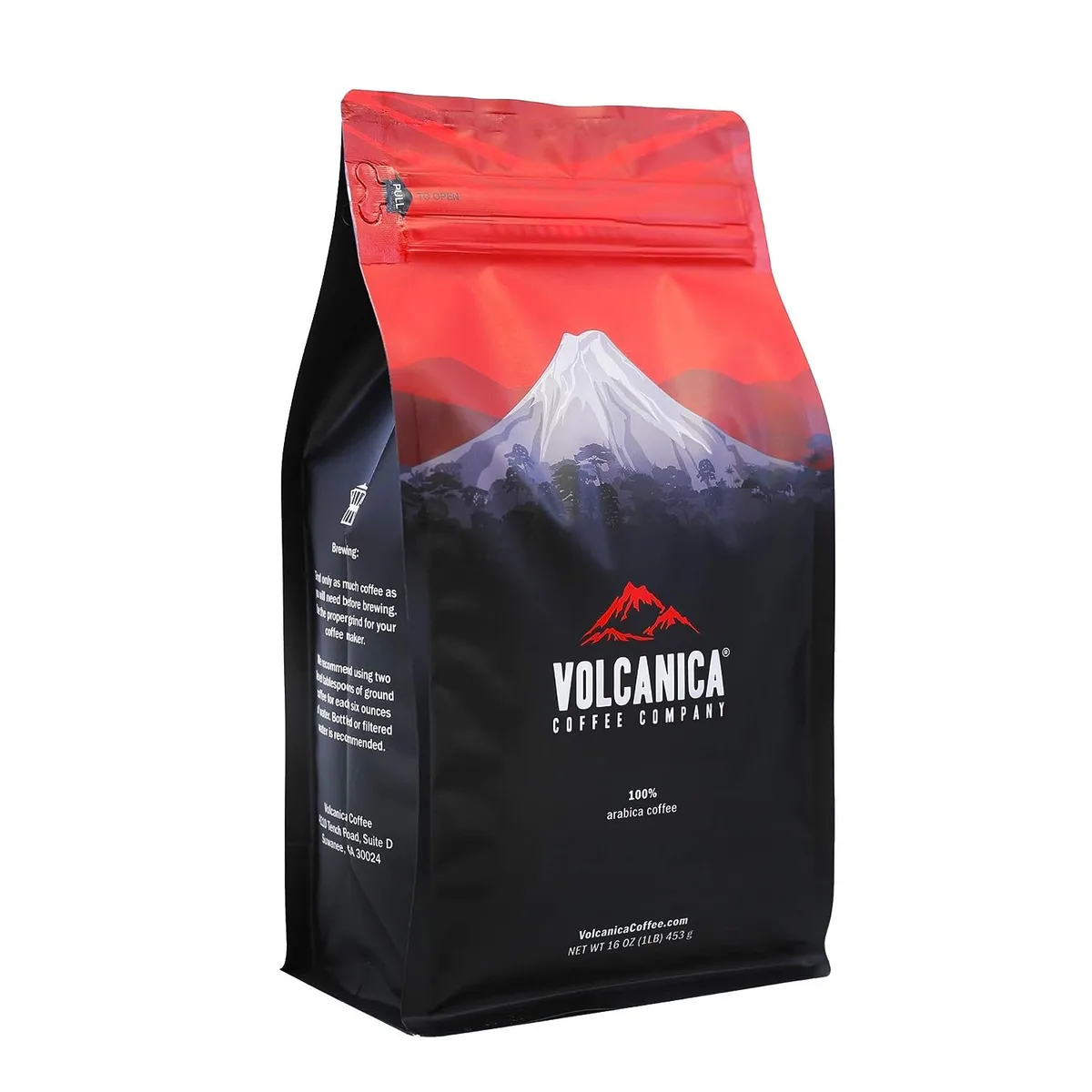
Freshly roasted and ground coffee from El Salvador. Offers a rich, smooth flavor in a 16-ounce package.
Pros:
- Rich and smooth flavor
- Freshly roasted and ground
- Comes in a 16-ounce package
Patria El Salvador Dark Roast Ground Coffee
⭐ 4.5/5 • 💰 ~$17
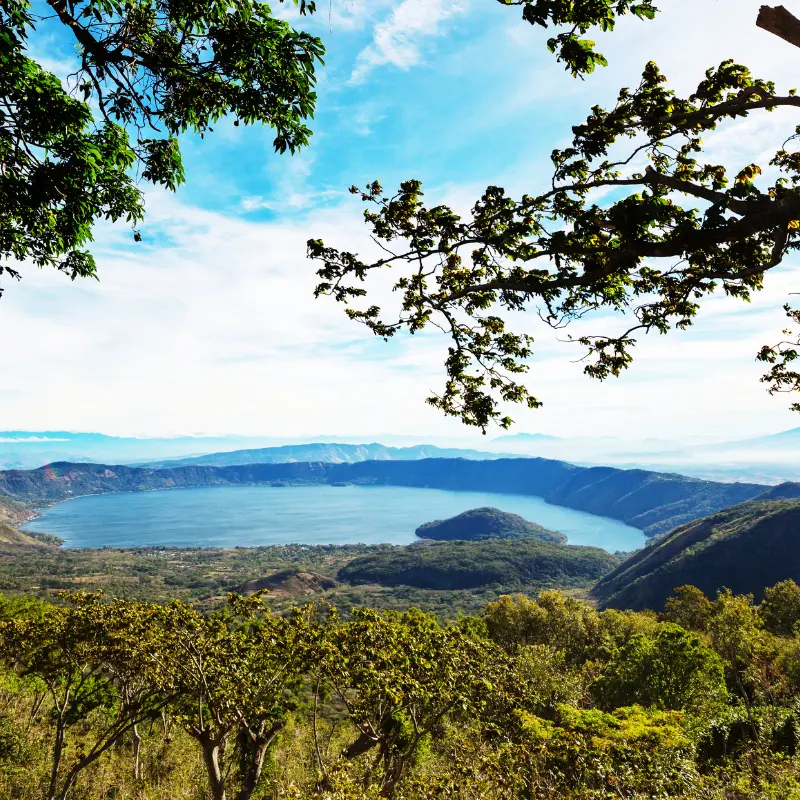
Patria El Salvador Dark Roast offers a balanced, sweet brew, inspired by the unique coffee profiles from the Bean Belt region.
Pros:
- Well-balanced brew with medium body
- Honey-like sweetness enhances taste
- Made from carefully selected Arabica beans
- Rich coffee, perfect for any time of the day
El Salvador Fresh Roasted Coffee
⭐ 4.5/5 • 💰 ~$28
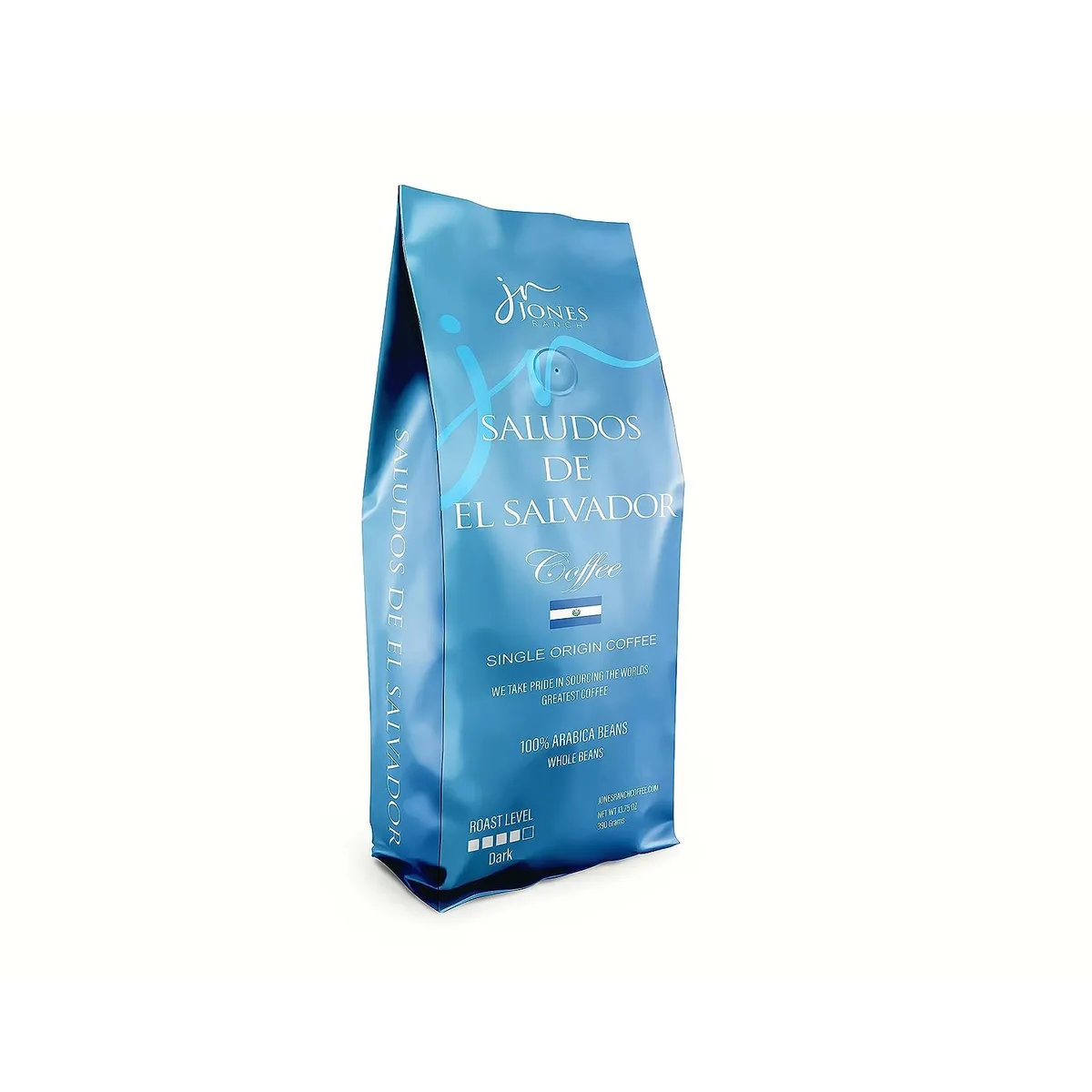
El Salvador fresh roasted coffee, made from premium beans using state-of-the-art roasters. Roasted to order for maximum freshness and flavor.
Pros:
- Roasted on order for maximum freshness
- Uses premium specialty grade coffee beans
- Roasting process enhances natural aromatics
- Offered as whole beans or can be ground upon request
- Ability to request different roast levels
CUVEE COFFEE El Salvador
⭐ 4.6/5 • 💰 ~$23
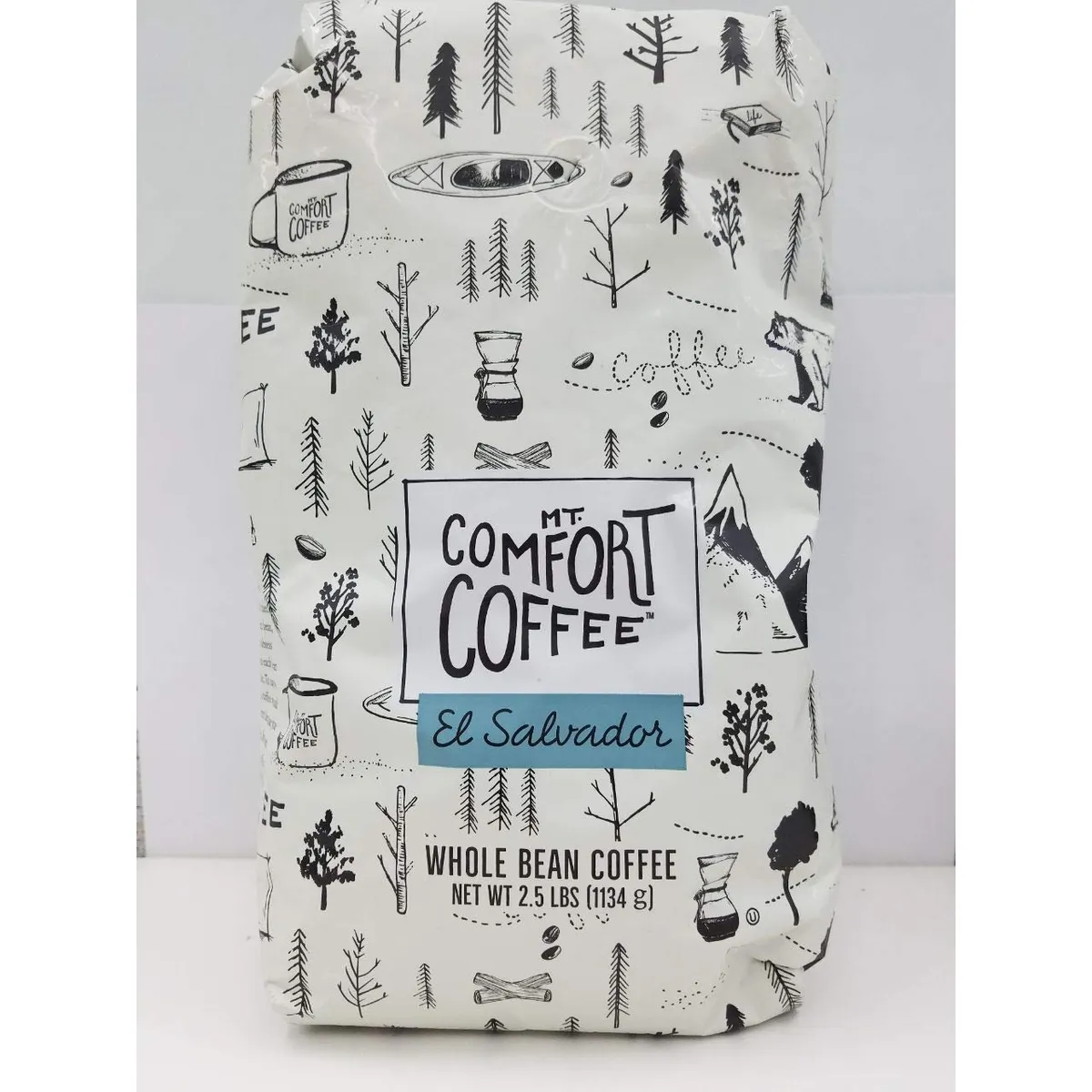
CUVEE COFFEE El Salvador is a must-try, offering a rich and fresh coffee experience that is both bold and smooth.
Pros:
- Rich in flavor
- Smooth and bold
- Excellent freshness
Mt. Comfort Coffee El Salvador Medium Roast
⭐ 4.4/5 • 💰 ~$24
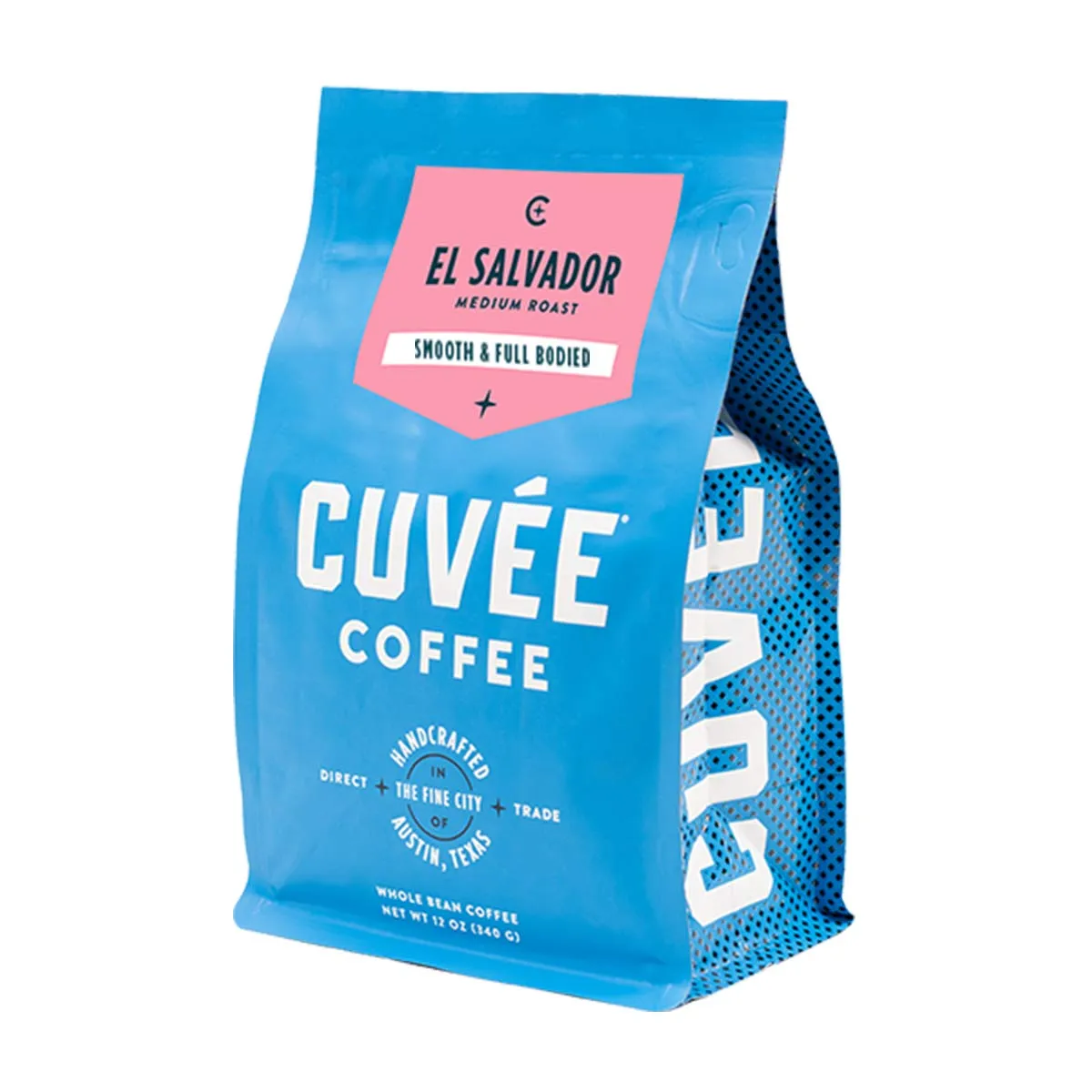
Rich and flavorful Mt. Comfort medium roast coffee with distinct notes of honey, tangerine, and chocolate, sourced from El Salvador.
Pros:
- Rich and distinct flavor combination
- Sourced directly from El Salvadorian coffee farms
- Generously sized 2.5lb bag
- Conveniently comes in whole beans
- Roasted to bring out the truest flavors
Jones Ranch Coffee Saludos de El Salvador
⭐ 4.4/5 • 💰 ~$15
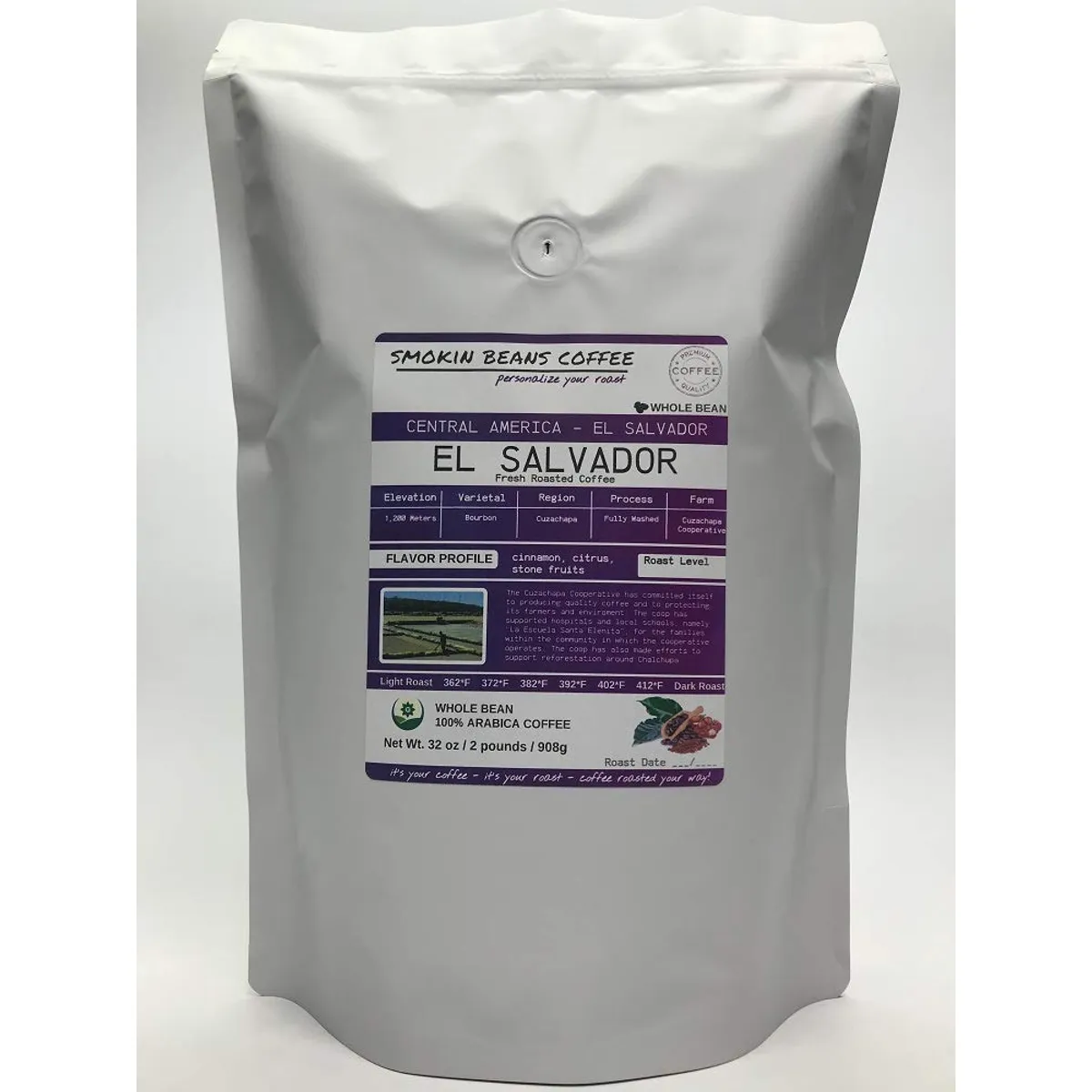
Premium, single-origin 100% Arabica whole bean coffee from Central America. Bold, smooth flavor with fair trade and sustainable sourcing.
Pros:
- Rich, full-bodied flavor
- Fair trade and sustainable
- 100% Arabica beans
- Smooth, clean finish
- Premium single-origin
Coffee Growing Regions in El Salvador
| Region | Key Features | Notable Farms or Estates | Unique Characteristics |
|---|---|---|---|
| Apaneca-Ilamatepec |
| El Carmen Estate | Perfect shade-growing conditions, worked by the Alfaro family for over a century. |
| El Bálsamo-Quetzaltepec |
| N/A | Best flavors develop in the steepest locales. |
| Loma La Gloria |
| Loma La Gloria | International reputation for quality, multiple ownership due to societal and climate conditions. |
| Lesser Known Regions |
| N/A |
|
Apaneca-Ilamatepec
UNESCO has recognized the Apaneca-llamatepec Biosphere Reserve as biologically important to the health and ecosystems of El Salvador since 2007. There you can find the Apaneca Llamatepec mountain range near the city of Santa Ana.
As a part of a long chain of volcanoes that extends down the west coast of Central America called the Central America Volcanic Arc, Apaneca llamatepec is critical to Salvadoran coffee growth. Incredibly, the tall volcanic regions also contain lowlands where water from the nearby Pacific Ocean and Caribbean Sea pools and aquifers thrive.
There is an incredible mix of nutrients supporting tall trees and hearty soils that create the perfect shade-growing conditions for coffee farms and estates.
El Carmen Estate
This key farm has been worked by the Alfaro family for over a century. The coffees they produce are consistently covered by shade to keep temperatures cool enough for the best coffee growth. The farm has been a prolific source of income for people in the community for some time.
El Bálsamo-Quetzaltepec
On the slopes of the Quezaltepeque Mountain Range sits the San Salvador Volcano and the El Bálsamo Quezaltepeque coffee-growing region.
A short distance from the bustling capital of San Salvador, this region relies on the fertile soils of the volcanic range, high elevation climate, and humid ocean and sea breezes to grow some of the country’s best coffee. Coffee growers have farms all across this region, but only the plants grown in the steepest locals can develop the best flavors.
Loma La Gloria
This farm produces a red Bourbon varietal that is then honey-washed. Loma La Gloria has existed as a farm for many years but has undergone multiple owners due to the turbulent societal and climate conditions of the region. The current owner took over her father’s farm and invested in the farms into a respectable farm with an international reputation for quality.
Lesser known regions
Just because these two locations create most of the coffee exports for the country, doesn’t mean there aren’t smaller specialty farmers.
- The Chaparrastique
Near the Chaparrastique volcano, the coffee growing is truly resilient. The volcano here is still active, where as recently as 2013 the volcano exploded smoke and ash causing a national emergency in the coffee-producing region. Luckily, no lava spewed from the volcano and only slight injuries were reported. - Cacahuatique
The Cacahuatique name means “Hills of Cacao” for its mixture of cacao and coffee beans found in the area, and is derived from the indigenous Nahuatl language. This smaller region’s microclimate has helped small family farmers establish a reputation for unforgettable coffee beans. The shade-grown coffee allows for a nutrient-rich ecosystem that specialty coffee drinkers love.

Salvadorian Coffee Varietals and Processing Methods
El Salvador’s long and complex history of coffee growing means the country has had some incredible impact on the varietals of the region, including the Pacamara that naturally evolved in the region.
| Varietal | Origin | Flavor Profile | Body & Acidity | Special Characteristics |
|---|---|---|---|---|
| Bourbon | Central American region | Buttery and nutty, sweeter than most | Low acidity, medium body | Goes down smooth, part of the Arabica family |
| Pacas | El Salvador | Chocolatey, less sweet than Bourbon | Not specified | Small tree, high yield, good for dark roasts |
| Maragogipe | International | Unforgettable taste | Full body, moderate acidity | Rare, susceptible to disease, low yield |
| Pacamara | El Salvador | Complex acidic taste, honey and butterscotch flavors | Best in light or medium roast | Hybrid of Maragogipe and Pacas, creamy cup with floral aroma |
- Bourbon
Don’t worry, no one has spiked your drink. The only bite this coffee has is from the coffee bean. As part of the Arabica family, the Bourbon coffee has flourished throughout the Central American region. The coffee has a buttery and nutty flavor that is sweeter than most varieties of coffee. Because of its low acidity and medium body, coffee drinkers find that Bourbon varietals go down smooth.
- Pacas
Another widely popular Central American bean, the Pacas is an important part of El Salvador’s coffee history because it yielded El Salvador’s first native coffee bean. Although this bean derives itself from the Arabica, Bourbon coffee family, it’s notably different from the bourbon varietal. But these chocolatey beans are less sweet than the Bourbon and are favorites for dark roasts. As it grows, it’s a small tree that puts out a lot of beans.
- Maragogipe
Another incredible international favorite, the Maragogipe is a large bean with an unforgettable taste. This varietal is incredibly rare because of its size and low yield and is also susceptible to disease, leading some coffee farmers to phase it out of their production completely. But its prolific mouthfeel and full body satisfy most drinkers. Its acidity isn’t overpowering and tastes cleaner with fewer natural sugars in the cup.
- Pacamara
The Pacamara strain originates in El Salvador and was created in 1958 as a hybrid of Maragogipe and Pacas varietals. They were bred to plant in bulk and grow bulk coffee beans, making Pacamara a favorite of coffee farmers. But it’s also a favorite of consumers as the complex acidic taste is best brewed in a light or medium roast. The creamy cup has sweeter flavors of honey and butterscotch with a floral aroma.
Coffee Processing Methods
Depending on the coffee farmer you talk to, each of these coffees has a preferred processing method. Here are the methods most often used in El Salvador:
Natural Processing
As the oldest method of coffee processing, this method is the most cost effective. After cleaning the coffee cherries with water, the cherries are placed out in the sun on raised tables or brick patios and allowed to dry. Coffee workers turn the beans often to evenly dry them and prevent molding. Later the beans de-pulped from the coffee cherry and rested before being sold to roasters.
Honey Processing
The honey process name comes from the result. When done right, honey-processed coffee tastes like your bean has been dosed in syrupy honey. In the honey process, the beans have been washed and then immediately de-pulped from the fruit, but are not washed again. They are left in their fruity juices to ferment as they dry. Those sugars are then turned into natural sugars that provide a boost of sweetness. You’ve probably already considered this, but due to the fermentation process this method is more technical and can result in more crop failures if allowed to spoil.
Washed Processing
In washed processing, the fruit is de-pulped and left as a coffee bean in a vat of water for a few days. While in the water, the beans will ferment. Coffee farmers determine how long the beans are left in the vat based on the day-to-day climate conditions. Once fermented, farmers wash the beans again to remove any remaining fruit and then leave them to dry. Many specialty coffee farmers rely on the washed method as it allows the true flavors of the bean to sit center stage in a brewed cup of coffee. Whether coffee farmers rely on honey, washed, or natural processing, it will amplify different flavors of the fruit, bean, and sun. Coffee farmers often consider the quality of the beans, the climate conditions, and the expected selling price when determining which method to use.
Economic and Social Impact
Historically, certain issues can percolate a community to the point where the issue seeps into all aspects of life. For El Salvador, this boiling point that disrupted the once prosperous coffee industry occurred in the late 1900s with the El Salvador Civil War.
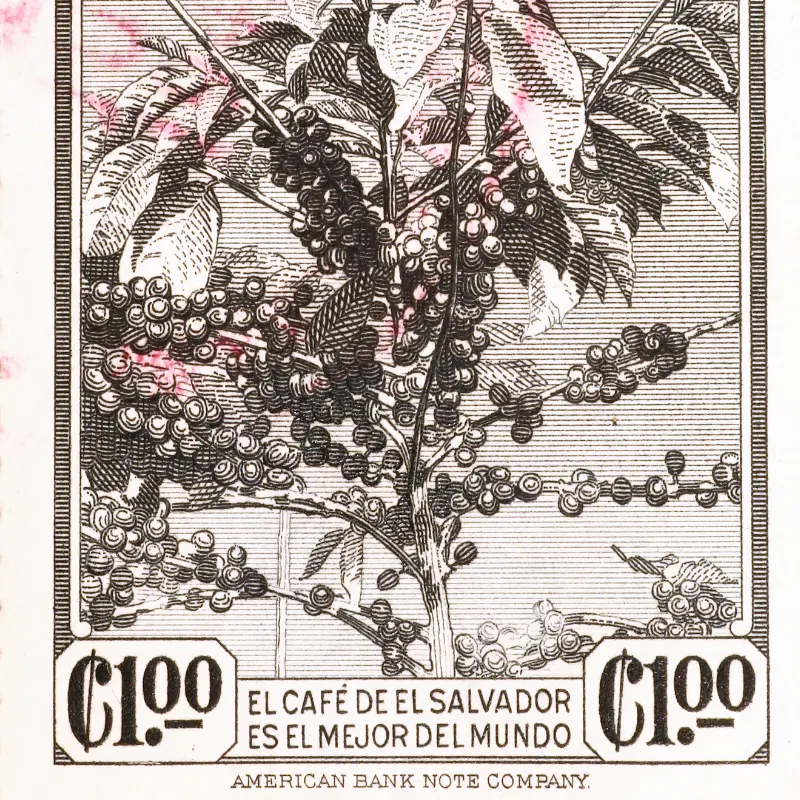
The El Salvador Civil War’s Impact on Coffee Exports
As a culture that is defined by its Mayan routes and Spanish colonization, many Salvadorian people identify as mestizo — a mix of indigenous and Spanish — today. In the 1920s and 1930s, coffee production was central to identity in El Salvador. The country’s coffee exports made up a whopping 95% of the country’s exports. By the 1970s, the small nation had become the world’s third-largest coffee producer. At that time, 50% of the nation’s GDP stemmed from the coffee industry during the 1980s.
From 1970 to 1990, violent uprisings uprooted the society’s status quo and disassembled the supply chain leaving an impoverished society and control by the rich.
Coffee’s Modern Economic Contributions
Now, the country relies more heavily on clothes production and exports to fund its economy. Coffee exports only fill 1.81% of the country’s exports. The regions that are known for coffee production now are carrying the torch for the country that otherwise spends its time producing clothes. Additionally, as coffee farmers continue to work on regrowing the industry, climate fluctuations and crop disease impacts their ability to rebuild. But many farmers are proud of the work they and their communities do that creates income for families and supports their rural communities.
Flavor Profile and Cupping Notes
Salvadorian flavors
With their daily labors of love, Salvadorian coffee has developed a strong flavor of chocolate. This is largely due to the chocolatey terroir of the bean because coffee farms often grow coffee plants near cacao plants. You can also expect more Bourbon family varietals of coffee that have a bright sweetness to them. With the rich volcanic soil, you can expect the coffee plants to grow strong and healthy leading to floral and almost fruity notes in the aroma and tastes.
What is terroir and how does it impact my cup?
Terroir is a French term that loosely means the environmental conditions surrounding a crop that gives the food its unique flavor. Depending on the farmer, the soil, climate, or even nearby plants, insects, and microbes could impact the coffee’s terroir. In Salvadorian agricultural systems, coffee and cacao are often grown near each other. In Central American ecosystems, bananas and avocados grow in abundance. All of these foods can impact each other’s terroir and the flavor you find when you brew your morning cup of Salvadorian java.
Cupping and tasting tips
If you’re trying a new brew and want to get the most mouthfeel, flavor, and aroma out of the drink to measure its flavors, look to the specialty methods. Take a small spoonful of brewed coffee, inhale the coffee out of the spoon, and allow it to coat your mouth. Do not swallow the coffee (or inhale it into your lungs), and instead spit it out into a cup. This allows the coffee to achieve maximum aeration, coat the different flavor sensors on your mouth, and allow your mouth to evaluate the full mouthfeel of a cup. Cupping and tasting techniques are often used by growers, roasters, and competitors to determine the strength, flavors, and quality of a brew.
Brewing El Salvador Coffee
When you finally get your delivery or cup of El Salvador coffee, you want to make sure it’s brewed in a way you can appreciate it.
Recommended brewing methods
Depending on your preference for light, medium, or dark coffee, you’ll want to choose the best brewing method to compliment the roast. A cup of dark coffee will likely benefit from an espresso. Whereas a light or medium roast will brew best in a pour-over or a drip brew.
How to get the best flavor
To get the most flavors out of your coffee, you should buy a light or medium coffee. We recommend light or medium coffee because roasteries often cook out the nutrients and flavors grown into the bean at darker levels. Darker roasts cause the bean to become burned or ashened, leaving little floral and acidic complexity and more dark chocolate and bitter tastes. We won’t tell a dark coffee drinker not to drink the coffee their way, but if you want to understand and taste the different varietal features you’ll need to shift your brew a little lighter.
How to pair El Salvador coffee with food
Pairing food is often about balancing flavor types not matching specific flavors, like sweet with sour or salts with fats. With an acidic light or medium roast, we recommend salty, fatty, or sweet flavors to provide a wider variety of tastes. Consider a coffee cake, your favorite pastry, or a nice plate of eggs. But, for a darker roast, you’ll likely want to balance the bitter flavors of the bean. Consider a frosted cinnamon roll, a cakey zucchini bread, or even your favorite bagel with cream cheese.
Conclusion
El Salvador is a country with a storied history and vibrant lifestyles that are built from the deep roots the country prizes to this day. The country’s coffee reflects this full-bodied depth. From the floral aromas that emanate from their mainly Bourbon coffee or the specialty Pacamara. The volcanic activity that defines El Salvador’s coffee is also a part of what gives the coffee such an incredible taste. While we always encourage our readers to drink what their hearts desire, we recommend you try a lighter or medium roast El Salvadorian coffee without milk or sugar to get a sense of what’s brewing in El Salvador.
